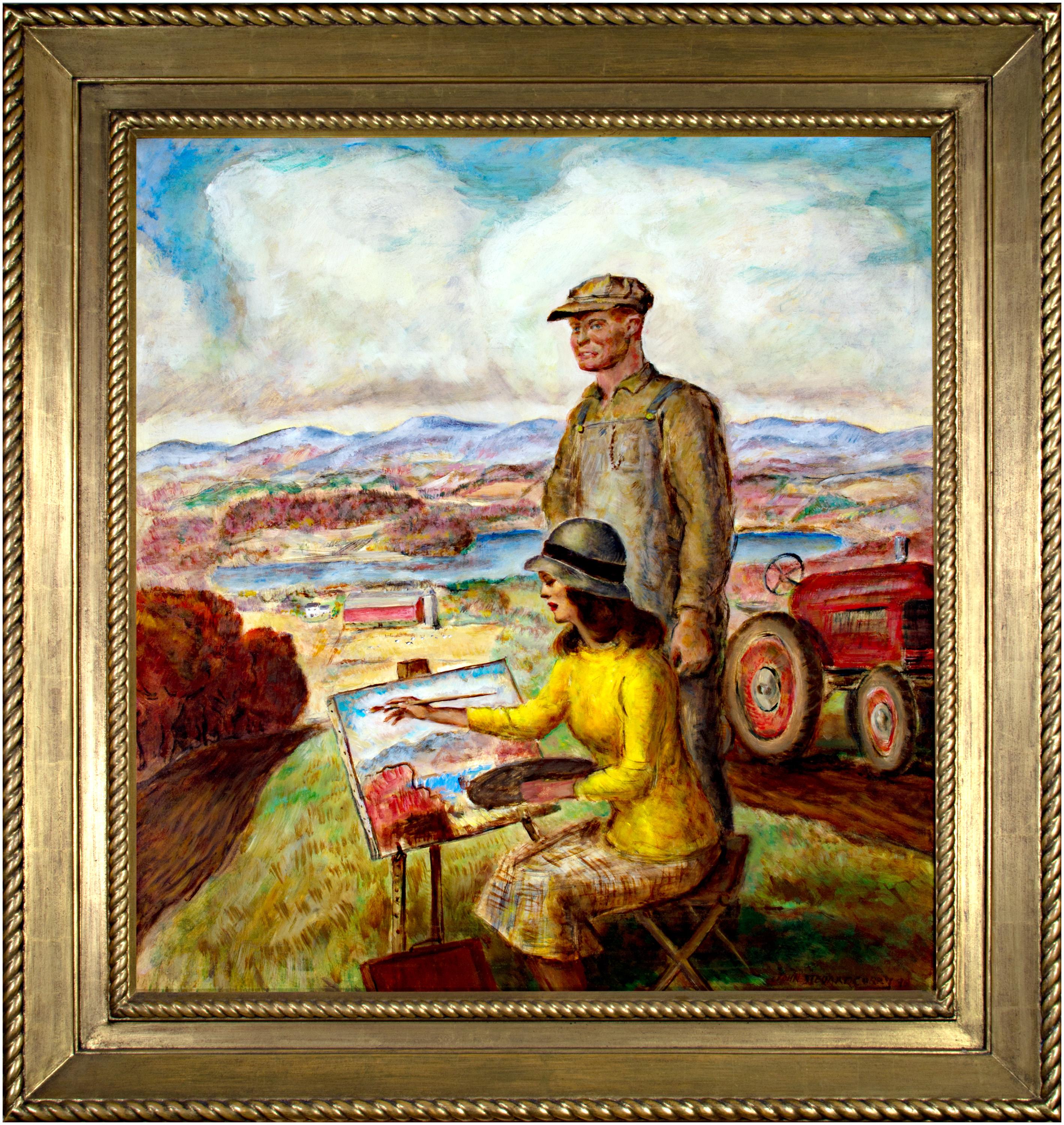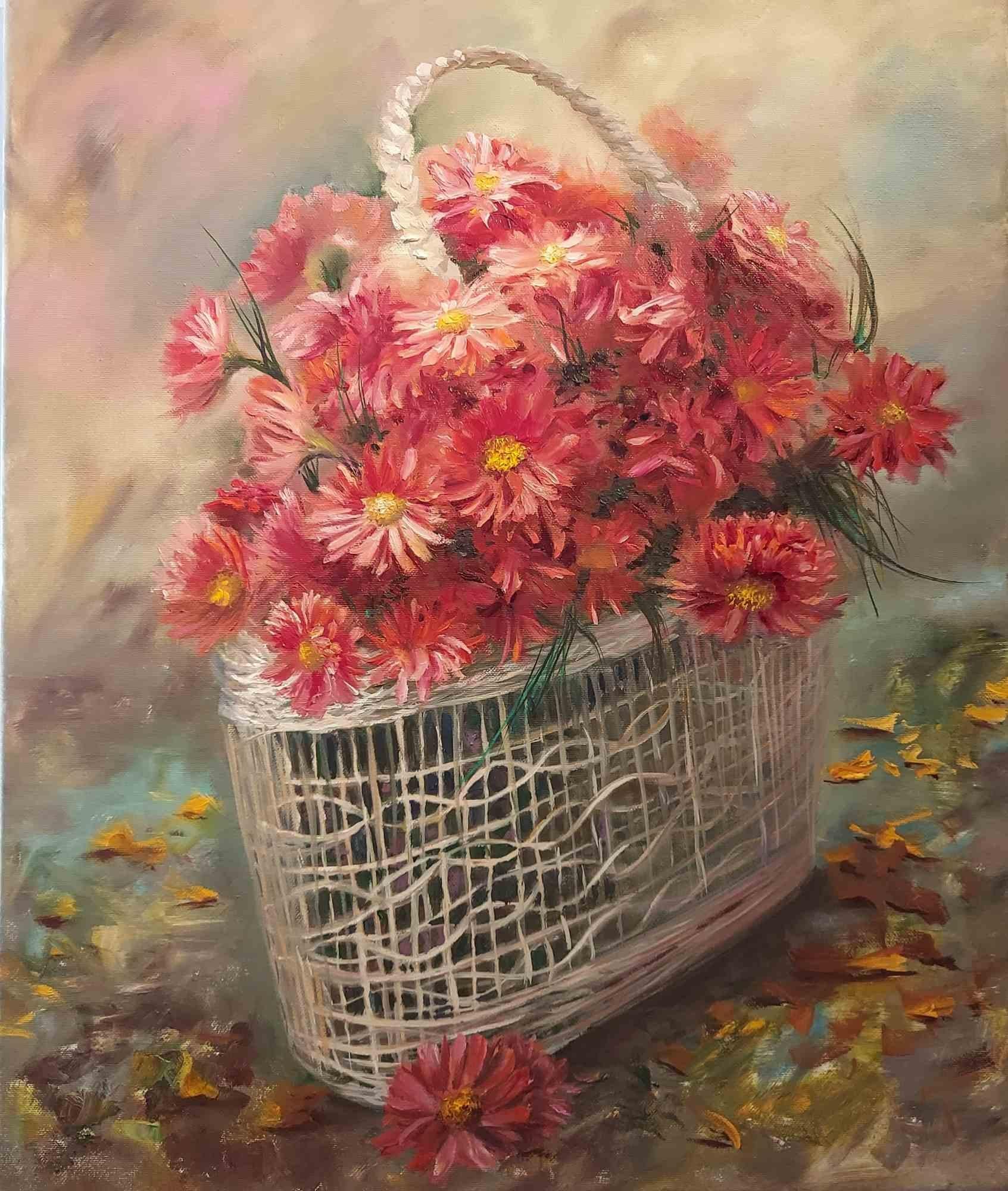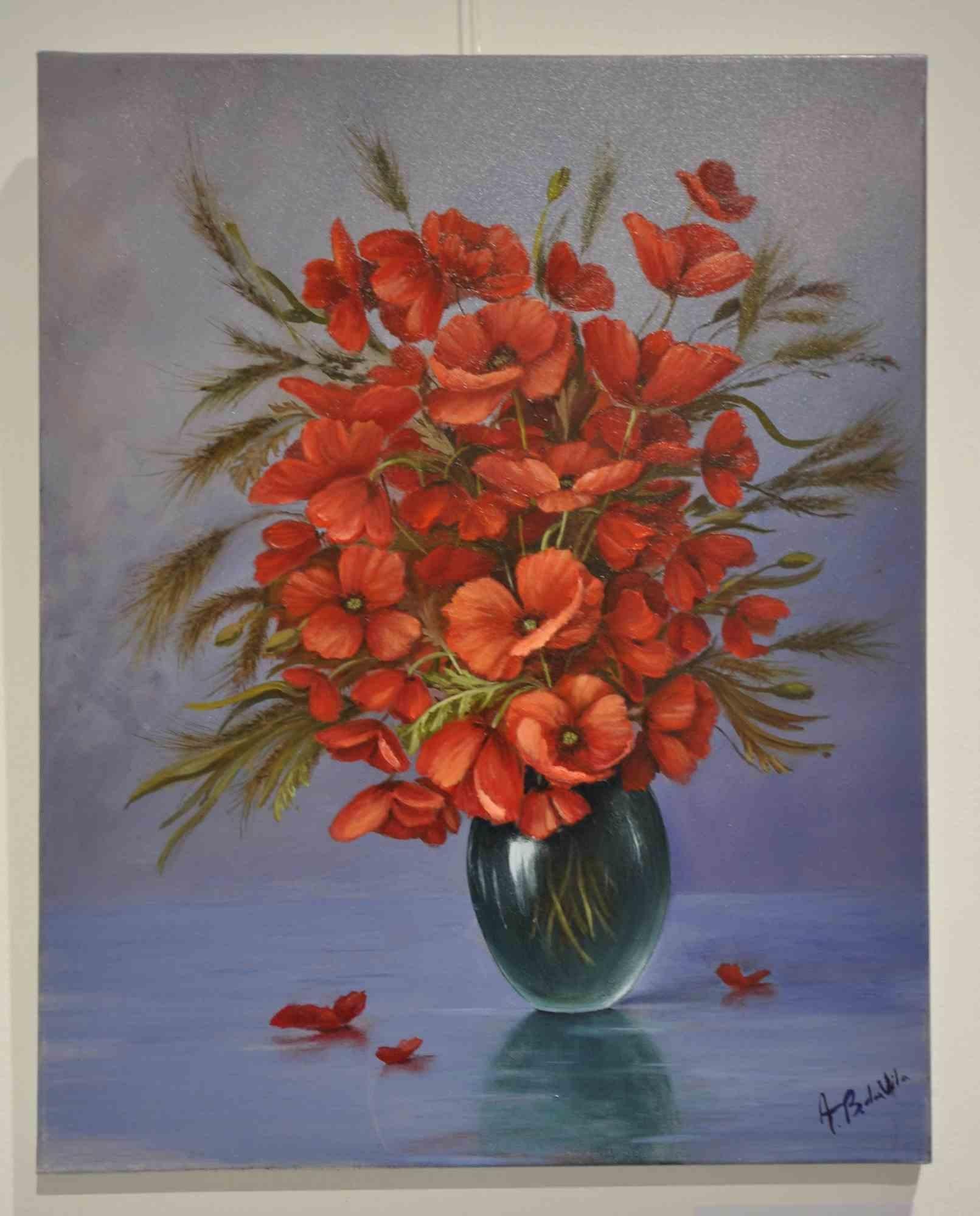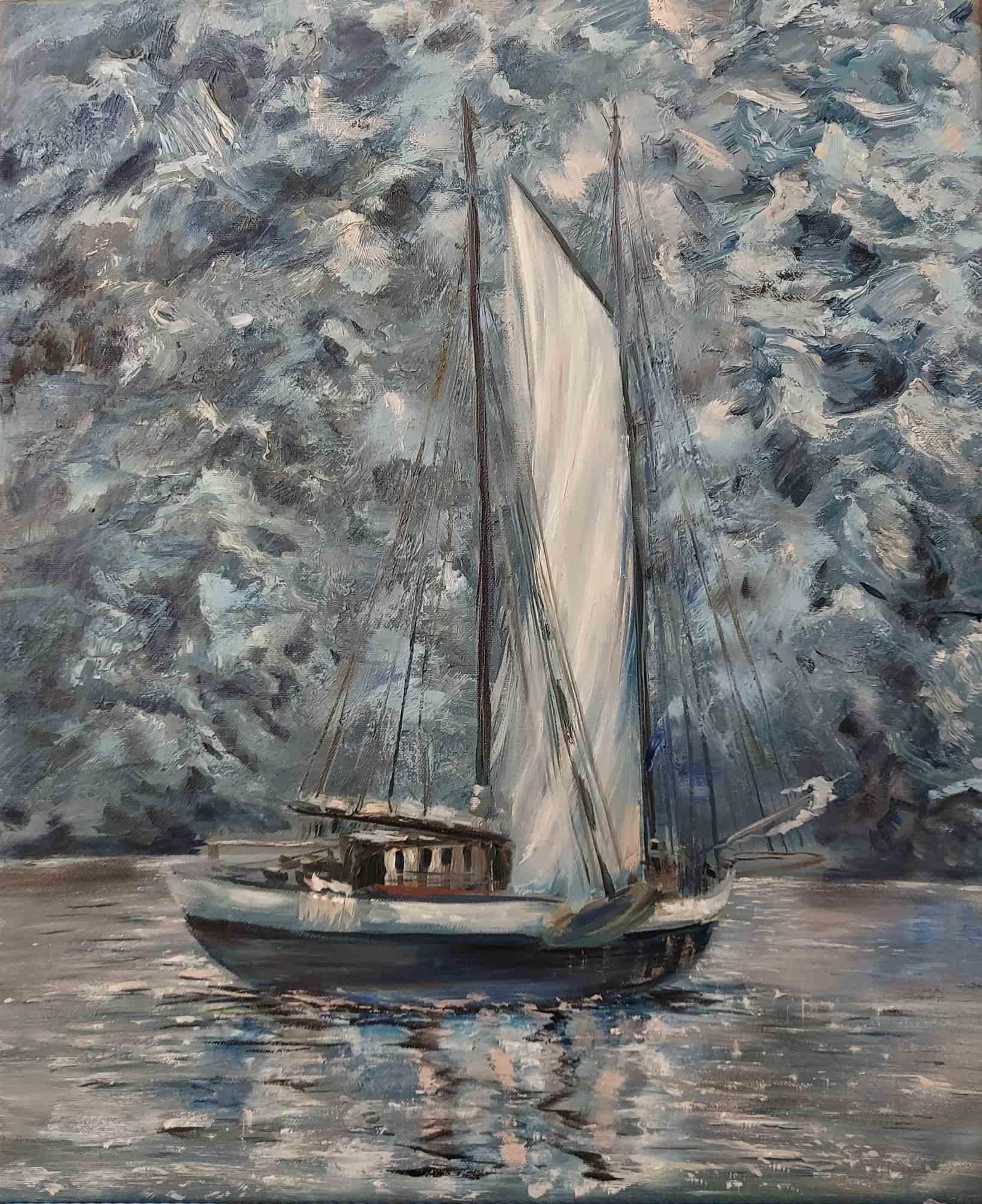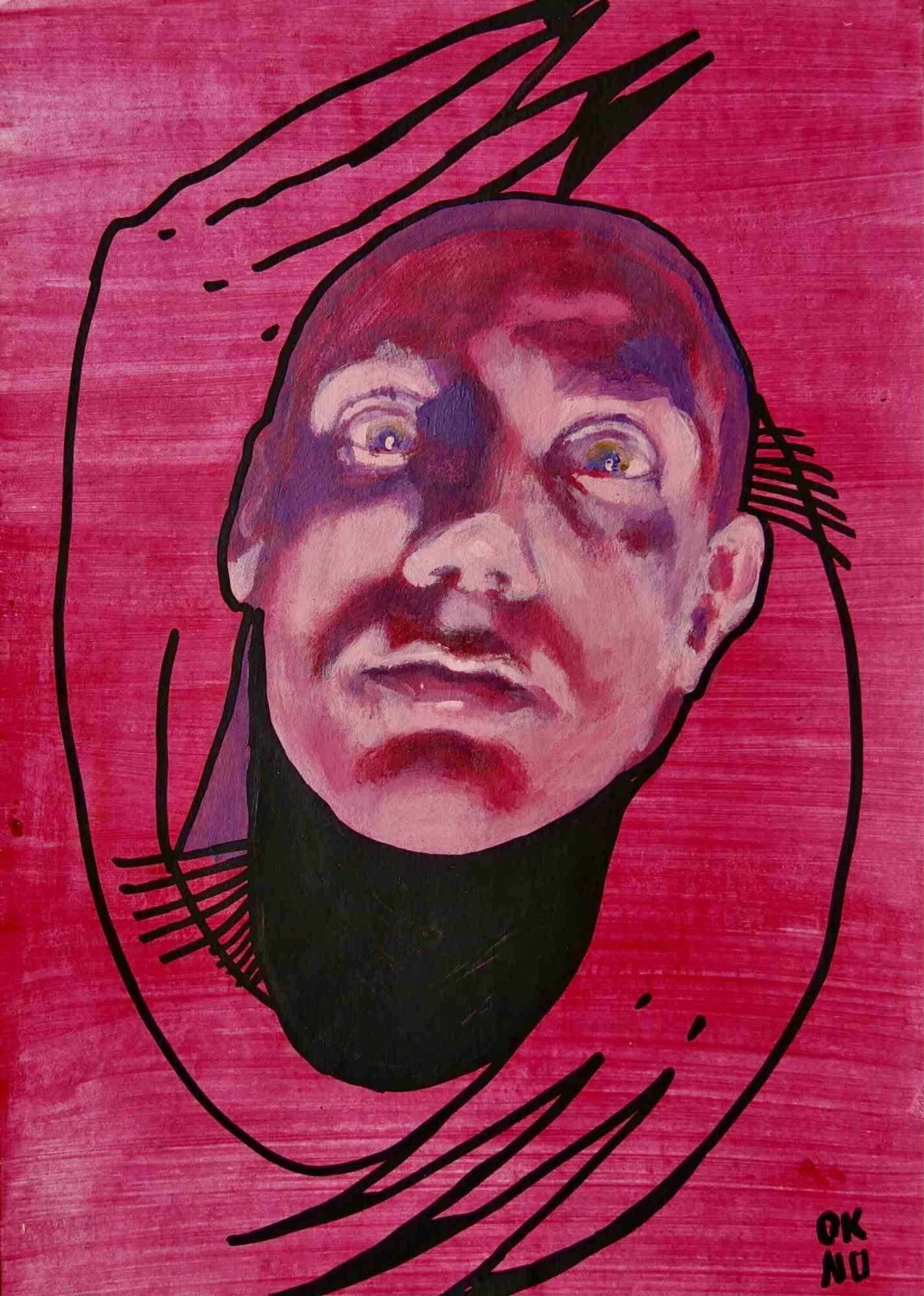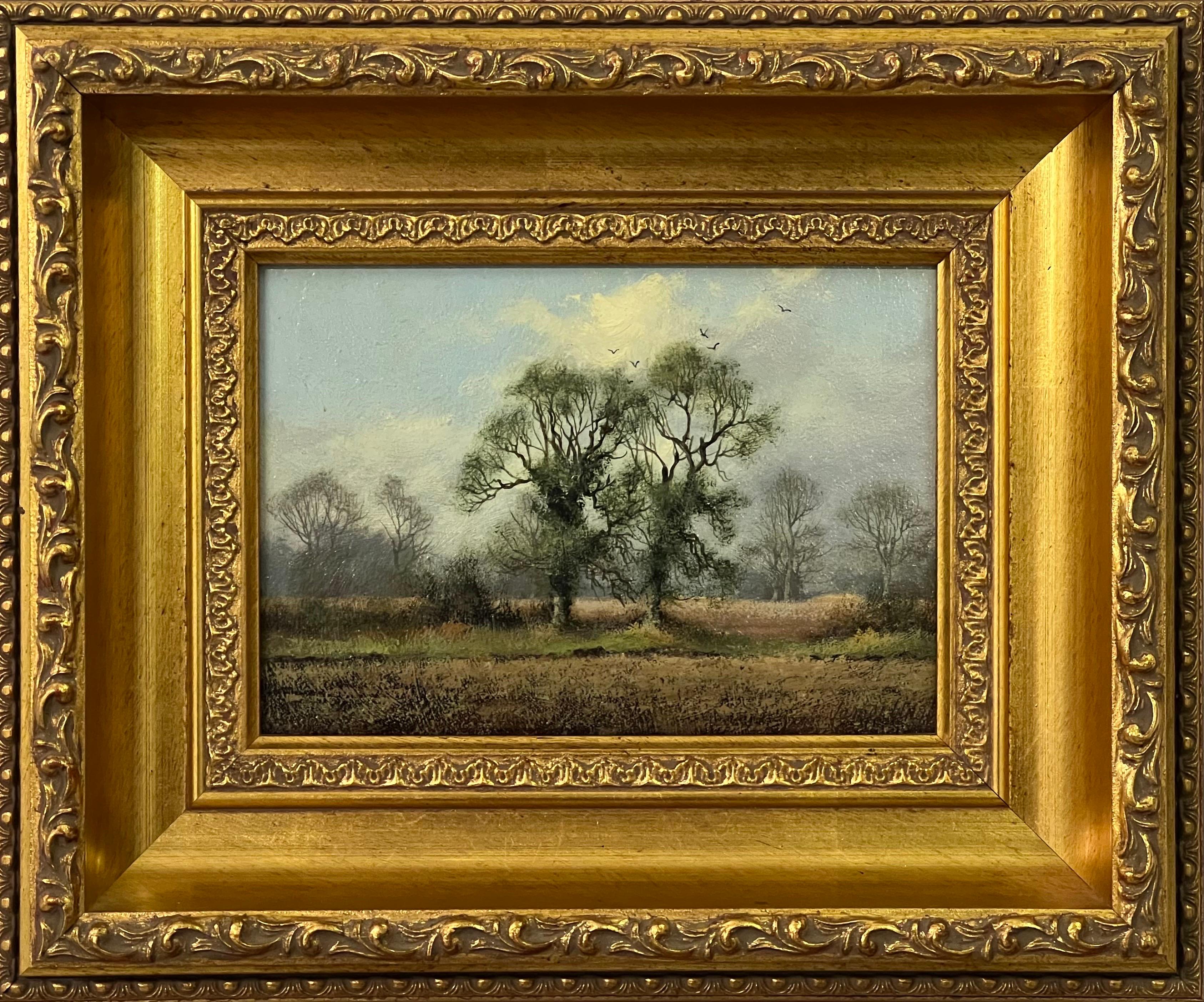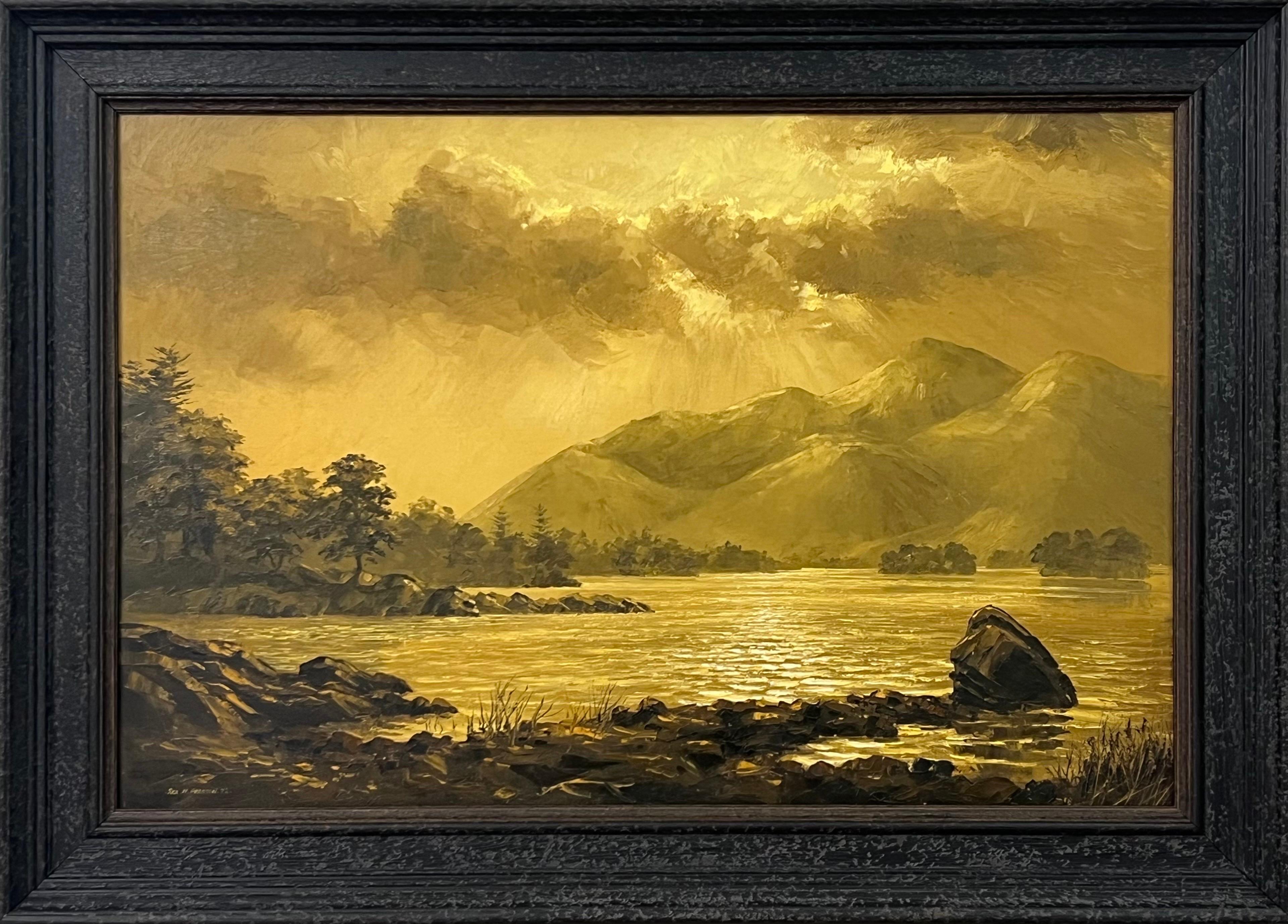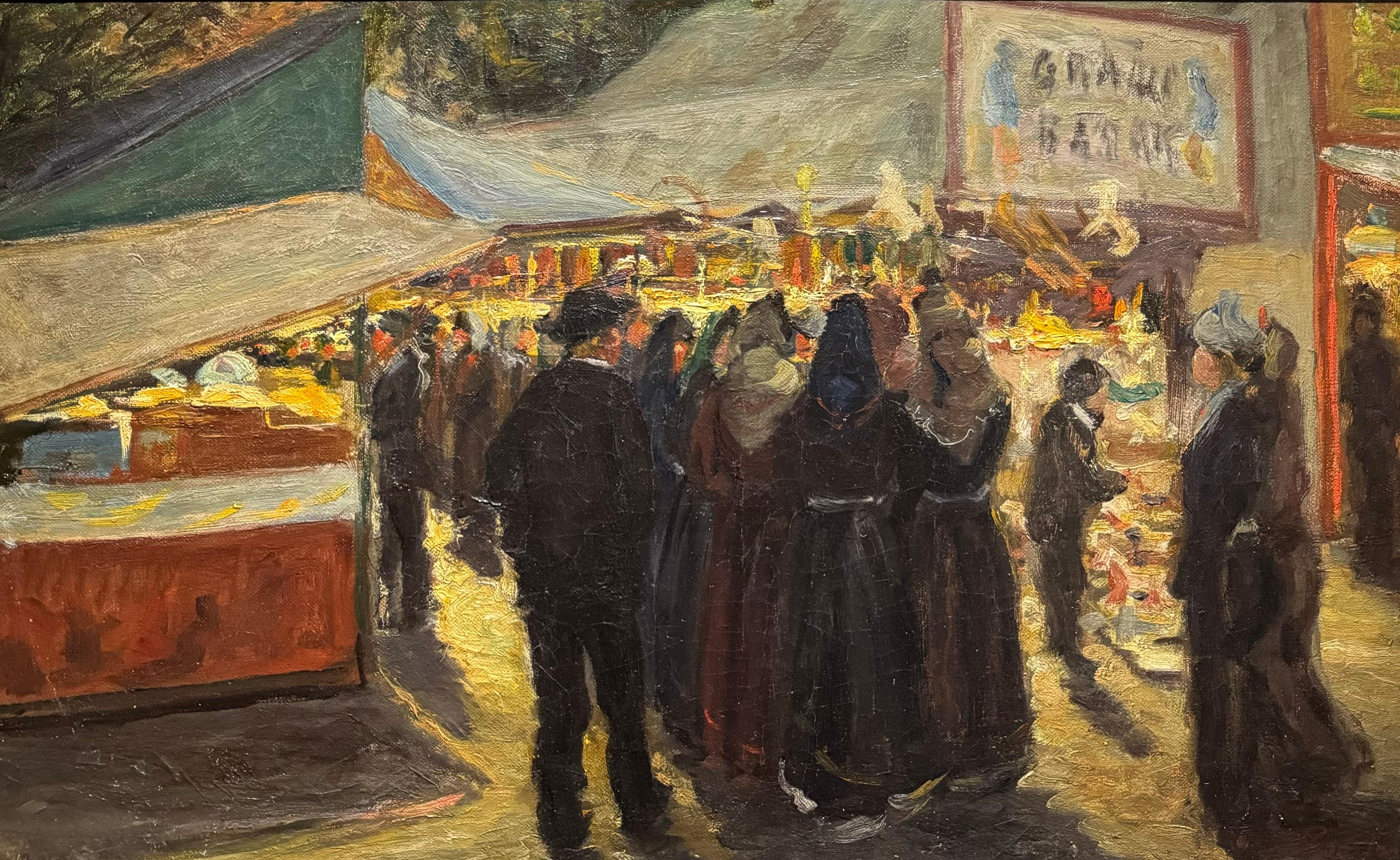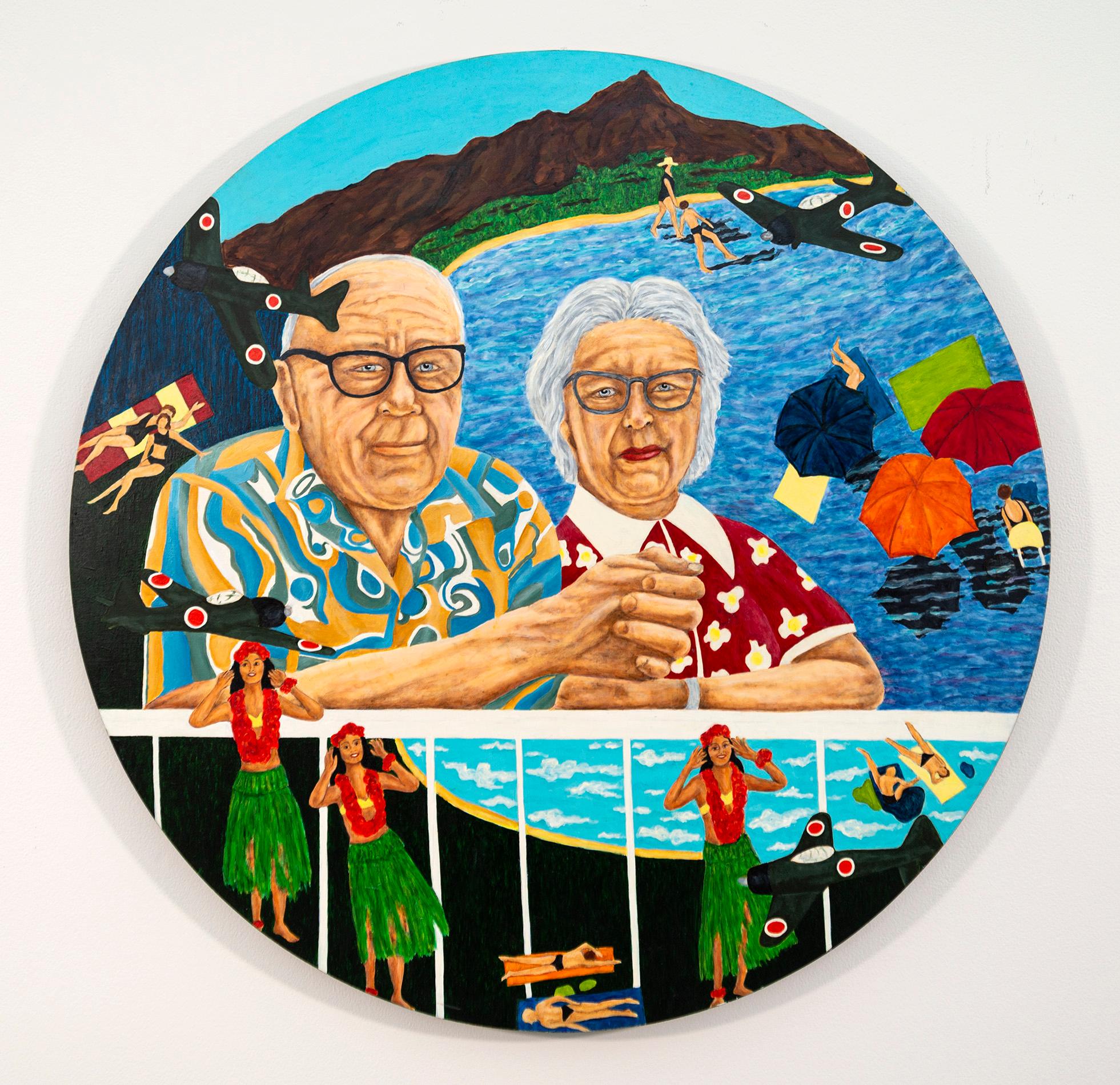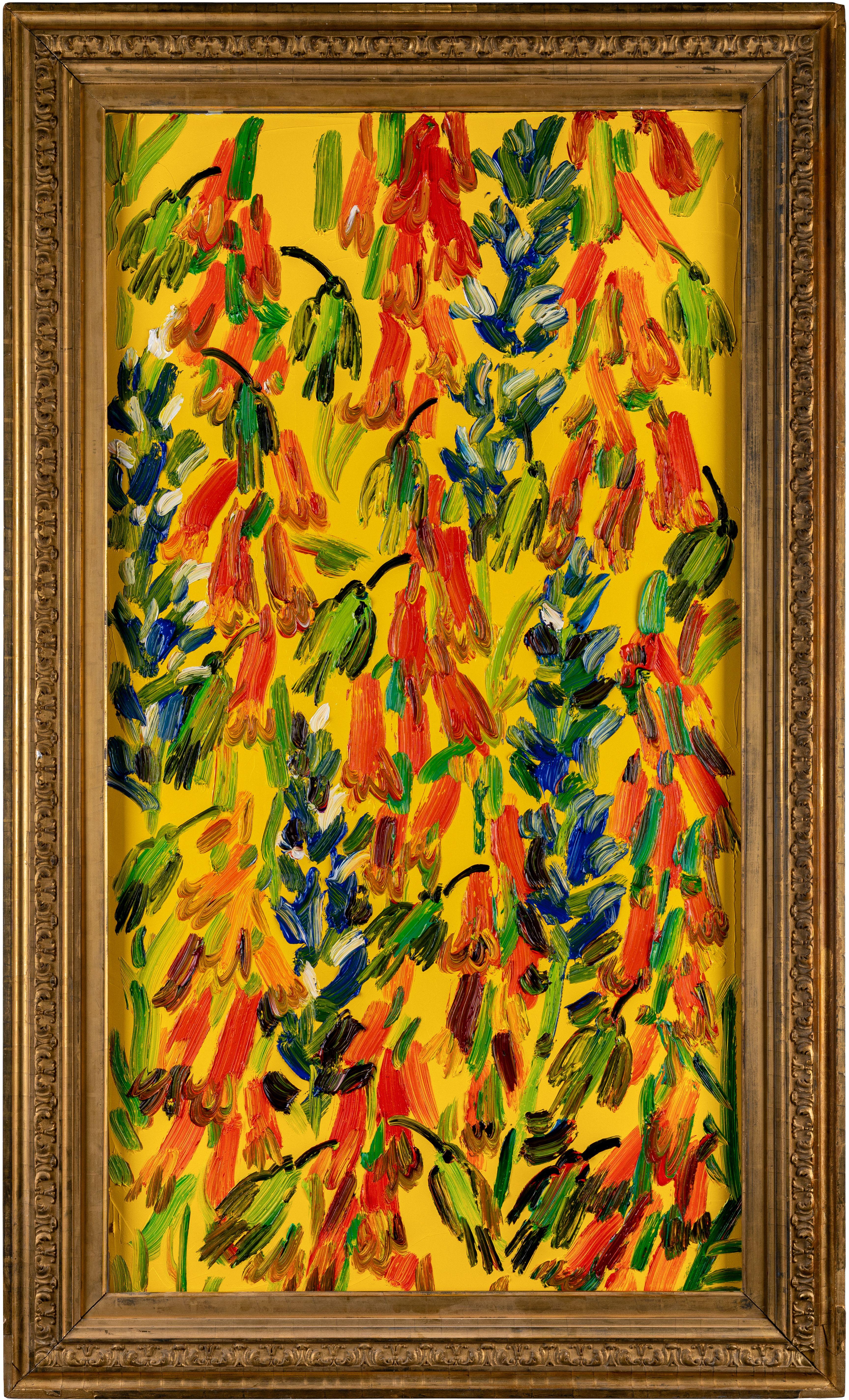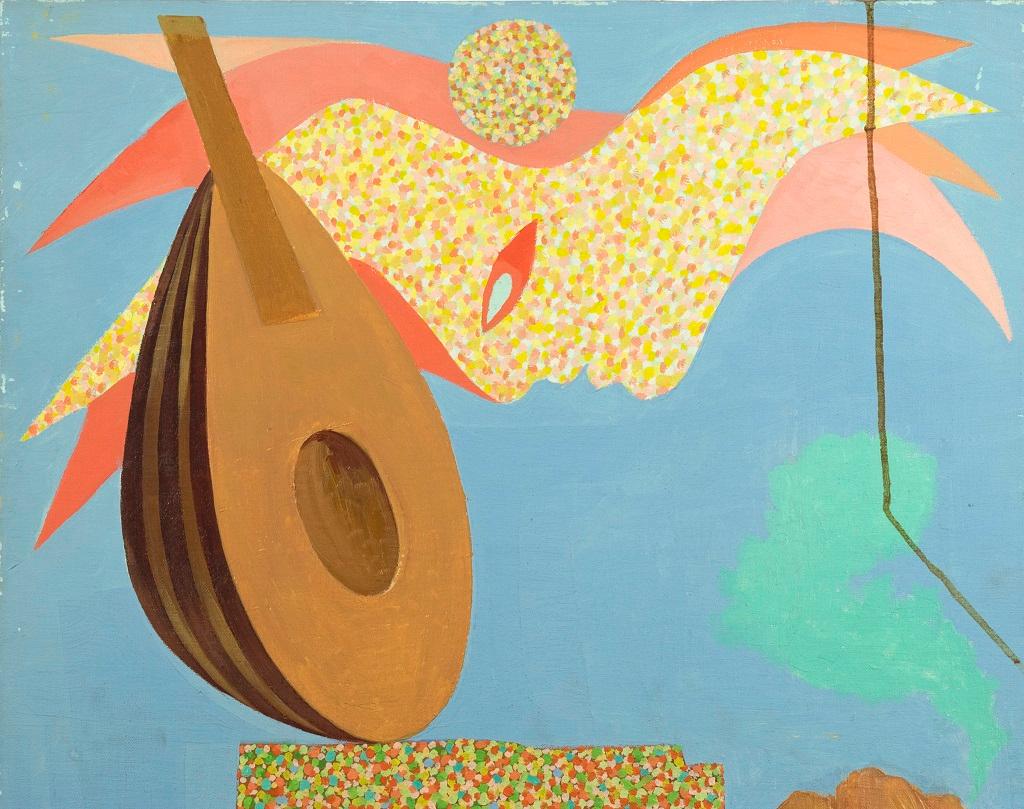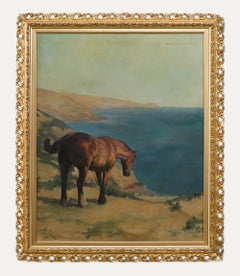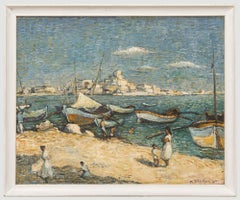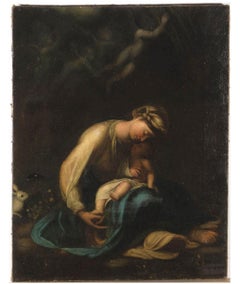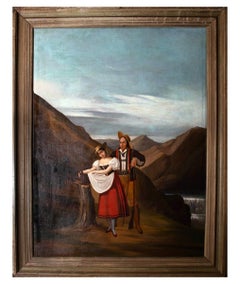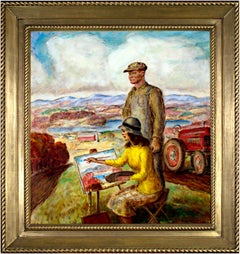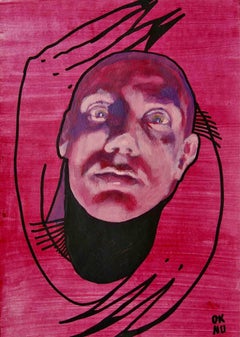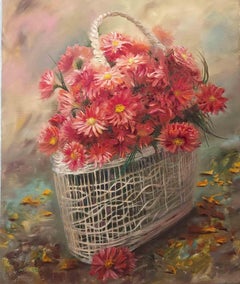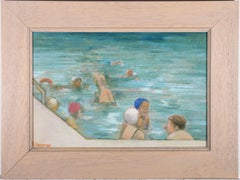
Audrey Lanceman (b.1931) - 20th Century Oil, The Swimming Pool
View Similar Items
Want more images or videos?
Request additional images or videos from the seller
1 of 9
Audrey LancemanAudrey Lanceman (b.1931) - 20th Century Oil, The Swimming PoolUnknown
Unknown
$439List Price
About the Item
- Creator:Audrey Lanceman
- Creation Year:Unknown
- Dimensions:Height: 16.15 in (41 cm)Width: 21.66 in (55 cm)
- Medium:
- Period:
- Condition:In fine condition.
- Gallery Location:Corsham, GB
- Reference Number:Seller: rt3811stDibs: LU881312083672
About the Seller
4.9
Gold Seller
Premium sellers maintaining a 4.3+ rating and 24-hour response times
Established in 2010
1stDibs seller since 2018
1,317 sales on 1stDibs
Typical response time: 3 hours
Authenticity Guarantee
In the unlikely event there’s an issue with an item’s authenticity, contact us within 1 year for a full refund. DetailsMoney-Back Guarantee
If your item is not as described, is damaged in transit, or does not arrive, contact us within 7 days for a full refund. Details24-Hour Cancellation
You have a 24-hour grace period in which to reconsider your purchase, with no questions asked.Vetted Professional Sellers
Our world-class sellers must adhere to strict standards for service and quality, maintaining the integrity of our listings.Price-Match Guarantee
If you find that a seller listed the same item for a lower price elsewhere, we’ll match it.Trusted Global Delivery
Our best-in-class carrier network provides specialized shipping options worldwide, including custom delivery.More From This Seller
View AllMargaret Neame - Framed Early 20th Century Oil, Brown Cob on a Coastal Cliff Top
Located in Corsham, GB
Stunning early 20th century oil painting by Margaret Neame. Brown Cob on a Coastal Cliff Top. Presented in a large gilt frame and slip with floral mouldings to the inner window and a...
Category
20th Century Abstract Impressionist Figurative Paintings
Materials
Oil
$1,176 Sale Price
20% Off
Michael D'Aguilar (1924-2011) - 1949 Oil, Continental Port
By Michael D'Aguilar
Located in Corsham, GB
Well presented in a simple white frame. Daily Mail Ideal Home 1950 exhibition label fixed to the reverse. Signed and dated. On canvas board.
Category
Mid-20th Century Figurative Paintings
Materials
Oil
$475 Sale Price
20% Off
After Antonio Allegri da Correggio (1489–1534) - c.1820 Oil, La Zingarella
Located in Corsham, GB
A truly masterful early 19th Century copy of the original Italian Renaissance masterpiece, "La Zingarella" by Correggio. The scene shows the Virgin Mary, cradling her son in a forest glade on their journey into Egypt. Several putti gather overhead and a blackbird and white rabbit (symbolising both Mary's virginity and fertility) can be seen at the lower left.Â
This beautiful copy has exquisite form, true to the original, and a masterful delicacy in the folds of the Virgin's clothes. This painting has been dated circa 1820, due to the style of nail and stretcher used to stretch the canvas, as well as stylistic and condition features. In addition, the Madonna’s features lack the saccharine sweetness of High Victoriana and posses a style closer to that of late Georgian painters...
Category
19th Century Figurative Paintings
Materials
Oil
Folk Art Mid 19th Century Oil - Swiss Peasants
Located in Corsham, GB
A truly unique and engaging piece of European Folk Art from the mid 19th Century. This vibrant and crisp scene shows two smartly dressed peasants standing in an expansive, beautiful Swiss mountain...
Category
Mid-19th Century Figurative Paintings
Materials
Oil
$3,168 Sale Price
20% Off
James Wilson Carmichael (1800-1868) - Signed Early 19th Century Oil, The Docks
By James Wilson Carmichael
Located in Corsham, GB
A very fine early 19th century oil by the eminent nautical painter James Wilson Carmichael (1800-1868). In this particular unfinished composition Carmichael has depicted a small dock...
Category
19th Century Figurative Paintings
Materials
Oil
James Hardy Junior (1832–1889) - 1865 Oil, The Boy's Pet Rabbits
Located in Corsham, GB
Am exquisite example of the work of the Victorian genre scene painter, Thomas Hardy Junior. The scene shows a barn interior, with a young boy seated on the hay strewn floor, with his pet rabbits. Two little girls...
Category
Mid-19th Century Figurative Paintings
Materials
Oil
$2,468 Sale Price
20% Off
You May Also Like
'Sketching Wisconsin' original oil painting, Signed
By John Steuart Curry
Located in Milwaukee, WI
John Steuart Curry
"Sketching Wisconsin," 1946
oil on canvas
31.13 x 28 inches, canvas
39.75 x 36.75 x 2.5 inches, frame
Signed and dated lower right
Overall excellent condition
Presented in a 24-karat gold leaf hand-carved wood frame
John Steuart Curry (1897-1946) was an American regionalist painter active during the Great Depression and into World War II. He was born in Kansas on his family’s farm but went on to study art in Chicago, Paris and New York as young man. In Paris, he was exposed to the work of masters such as Peter Paul Rubens, Eugène Delacroix and Jacques-Louis David. As he matured, his work showed the influence of these masters, especially in his compositional decisions. Like the two other Midwestern regionalist artists that are most often grouped with him, Grant Wood (American, 1891-1942) and Thomas Hart Benton (American, 1889-1975), Curry was interested in representational works containing distinctly American subject matter. This was contrary to the popular art at the time, which was moving closer and closer to abstraction and individual expression.
Sketching Wisconsin is an oil painting completed in 1946, the last year of John Steuart Curry’s life, during which time he was the artist-in-residence at the University of Wisconsin in Madison. The painting is significant in Curry’s body of work both as a very revealing self-portrait, and as a landscape that clearly and sensitively depicts the scenery of southern Wisconsin near Madison. It is also a portrait of the artist’s second wife, Kathleen Gould Curry, and is unique in that it contains a ‘picture within a picture,’ a compositional element that many early painting masters used to draw the eye of the viewer. This particular artwork adds a new twist to this theme: Curry’s wife is creating essentially the same painting the viewer is looking at when viewing Sketching Wisconsin.
The triangular composition of the figures in the foreground immediately brings focus to a younger Curry, whose head penetrates the horizon line and whose gaze looks out towards the viewer. The eye then moves down to Mrs. Curry, who, seated on a folding stool and with her hand raised to paint the canvas on the easel before her, anchors the triangular composition. The shape is repeated in the legs of the stool and the easel. Behind the two figures, stripes of furrowed fields fall away gently down the hillside to a farmstead and small lake below. Beyond the lake, patches of field and forest rise and fall into the distance, and eventually give way to blue hills.
Here, Curry has subverted the traditional artist’s self-portrait by portraying himself as a farmer first and an artist second. He rejects what he sees as an elitist art world of the East Coast and Europe. In this self-portrait he depicts himself without any pretense or the instruments of his profession and with a red tractor standing in the field behind him as if he was taking a break from the field work. Here, Curry’s wife symbolizes John Steuart Curry’s identity as an artist. Compared with a self-portrait of the artist completed a decade earlier, this work shows a marked departure from how the artist previously presented and viewed himself. In the earlier portrait, Curry depicted himself in the studio with brushes in hand, and with some of his more recognizable and successful canvases behind him. But in Sketching Wisconsin, Curry has taken himself out of the studio and into the field, indicating a shift in the artist’s self-conception.
Sketching Wisconsin’s rural subject also expresses Curry’s populist ideals, that art could be relevant to anyone. This followed the broad educational objectives of UW’s artist-in-residence program. Curry was appointed to his position at the University of Wisconsin in 1937 and was the first person to hold any such position in the country, the purpose of which was to serve as an educational resource to the people of the state. He embraced his role at the University with zeal and not only opened the doors of his campus studio in the School of Agriculture to the community, but also spent a great deal of time traveling around the state of Wisconsin to visit rural artists who could benefit from his expertise. It was during his ten years in the program that Curry was able to put into practice his belief that art should be meaningful to the rural populace. However, during this time he also struggled with public criticism, as the dominant forces of the art market were moving away from representation. Perhaps it was Curry’s desire for public acceptance during the latter part of his career that caused him to portray himself as an Everyman in Sketching Wisconsin.
Beyond its importance as a portrait of the artist, Sketching Wisconsin is also a detailed and sensitive landscape that shows us Curry’s deep personal connection to his environment. The landscape here can be compared to Wisconsin Landscape of 1938-39 (the Metropolitan Museum of Art), which presents a similar tableau of rolling hills with a patchwork of fields. Like Wisconsin Landscape, this is an incredibly detailed and expressive depiction of a place close to the artist’s heart. This expressive landscape is certainly the result of many hours spent sketching people, animals, weather conditions and topography of Wisconsin as Curry traveled around the state. The backdrop of undulating hills and the sweeping horizon, and the emotions evoked by it, are emphatically recognizable as the ‘driftless’ area of south-central Wisconsin. But while the Metropolitan’s Wisconsin Landscape conveys a sense of uncertainty or foreboding with its dramatic spring cloudscape and alternating bands of light and dark, Sketching Wisconsin has a warm and reflective mood. The colors of the foliage indicate that it is late summer and Curry seems to look out at the viewer approvingly, as if satisfied with the fertile ground surrounding him.
The landscape in Sketching Wisconsin is also revealing of what became one of Curry’s passions while artist-in-residence at UW’s School of Agriculture – soil conservation. When Curry was a child in Kansas, he saw his father almost lose his farm and its soil to the erosion of The Dust Bowl. Therefore, he was very enthusiastic about ideas from UW’s School of Agriculture on soil conservation methods being used on Wisconsin farms. In Sketching Wisconsin, we see evidence of crop rotation methods in the terraced stripes of fields leading down the hillside away from the Curry’s and in how they alternate between cultivated and fallow fields.
Overall, Sketching Wisconsin has a warm, reflective, and comfortably pastoral atmosphere, and the perceived shift in Curry’s self-image that is evident in the portrait is a positive one. After his rise to favor in the art world in the 1930’s, and then rejection from it due to the strong beliefs presented in his art, Curry is satisfied and proud to be farmer in this self-portrait. Curry suffered from high blood...
Category
1940s American Realist Figurative Paintings
Materials
Canvas, Oil
What's ahead? (3) - Oil Painting by Valeriya Shebelnichenko - 2023
Located in Roma, IT
"What's ahead (3)" is a painting made by Ukrainian artist Okno in 2023.
Acrylic and marker on drawing paper. Signed by hand. Excellent condition.
The work is part of the artist's s...
Category
2010s Contemporary Figurative Paintings
Materials
Oil
Coral Flowers - Oil Paint by Elena Mardashova - 2023
Located in Roma, IT
Original oil painting on canvas, realized by Elena Mardashova in 2023.
Perfect condition.
Category
2010s Modern Figurative Paintings
Materials
Oil, Canvas
Abstract Composition - Oil Painting by Tato - Early 20th Century
Located in Roma, IT
This Abstract Composition was realized by the Italian artist Tato (Guglielmo Sansoni, 1896-1974) in the early 20th century.
Oil painting on canvas. ...
Category
Early 20th Century Abstract Figurative Paintings
Materials
Oil
Papaveri - Poppies 1 - Painting by Adriano Bernetti da Vila - 2017
Located in Roma, IT
Papaveri 1 is an original oil on canvas realized by the italian artist Adriano Bernetti da Vila.
Category
2010s Contemporary Figurative Paintings
Materials
Oil
Arctic Area - Oil Painting by Elena Mardashova - 2022
Located in Roma, IT
Oil painting on canvas by Elena Mardashova, 50x60 cm.
Excellent condition.
Category
2010s Contemporary Figurative Paintings
Materials
Oil
